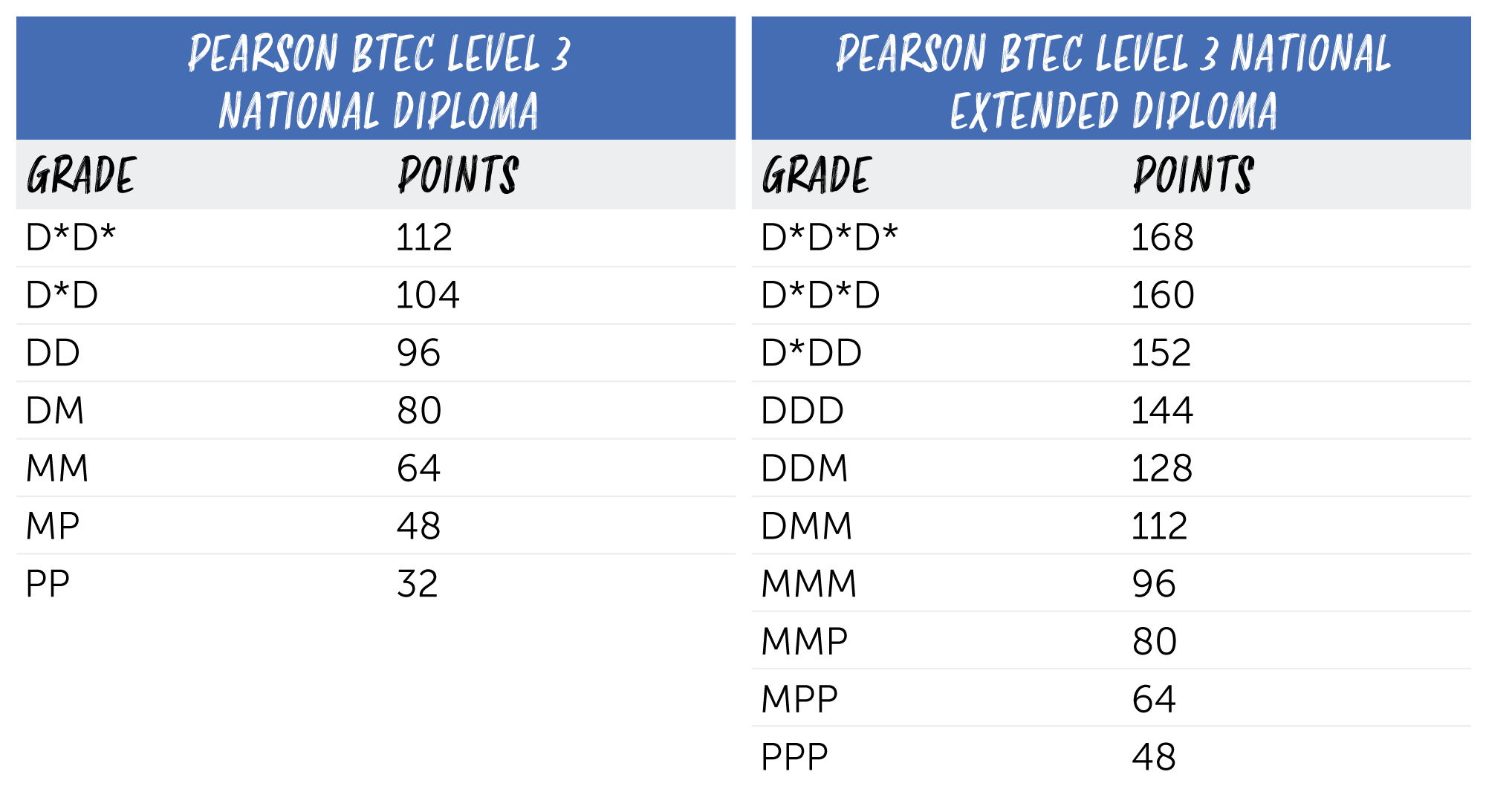UCAS Tariff Points - A Simple Guide

Trying to figure out how many UCAS points your qualifications are worth? This quick article explains what UCAS tariff points are and how to use them in your university application. You will also find points tables to calculate your total tariff points at a glance.
What are UCAS Tariff Points?
The points translate a range of post-16 qualifications and grades into one standard numerical value. The higher the grade, the higher the number of points awarded.
The broad metric is only used to standardise higher education qualifications. Often the top grades of qualifications achieve the same number of points e.g. A-Level A* is equivalent to International Baccalaureate H7.
The system helps university admissions officers make fair comparisons between students with different qualifications.
For example, if one student applied to university with A-Level qualifications, and another applied with a BTEC qualification, the admissions officers can easily understand and compare the qualification level of each student.
Only a third of UCAS university courses use tariff points in their entry requirements. As not all universities use tariff points in their admissions, many students will not need to use points in their application process.
Courses that use tariff points in their entry requirements usually allow a range of values. This means students can obtain different grades or qualifications to reach the requirements.
For example a course may have the entry requirements of 104-112 UCAS tariff points.
Applying students could achieve A-level grades BCC (104 points) or BBC (112 points), or they could achieve DMM (112 points) in a BTEC Level 3 National Extended Diploma.
Make sure to check the entry requirements for the course you are applying for. The course may require you to have qualifications in certain subjects, or need you to provide the admissions team with the modules you completed on your Level 3 qualification.
It can still be helpful to understand the points value of your qualifications when applying for university. Remember to translate your predicted grades into UCAS points, so you know what to aim for when taking your exams.
You can use the tables below to find out what your qualifications are worth.
How many UCAS Points is an A-Level?
Depending on the grade you received on results day, your A-Level qualification is worth a different number of points. Here are some examples:
Grade A* - A-Level is worth 56 UCAS Points
Grade A - A-Level is worth 48 UCAS Points
Grade B - A-Level is worth 40 UCAS Points
Grade C - A-Level is worth 32 UCAS Points
Grade D - A-Level is worth 24 UCAS Points
Grade E - A-Level is worth 16 UCAS Points
How many UCAS points do I have?
Find your qualification type and grade in the tables below to calculate your total UCAS Tariff Points.

Image Credit

Image Credit
.png)
Image Credit

Image Credit

Image Credit
To calculate your tariff points across different qualifications, or find a qualification not listed above, you can use the UCAS Tariff Points Calculator.
Which universities take UCAS points?
Not all universities use tariff points in their entry requirements. You can find out if a university accepts UCAS points on their website e.g. The University of Manchester does not use UCAS points in applications or offers.
Some universities do use tariff points in their entry requirements. An example is Bournemouth University. However, make sure to check the guidance from each university you apply for - different types of qualification may or may not be accepted, regardless of if they can be translated into UCAS points. Just because you can gain tariff points from a qualification does not mean you will always be able to use it when applying for courses.
If your qualification cannot be shown in UCAS tariff points, you may still be able to use it within your application. Contact the university directly or check the entry requirements for alternative qualifications.
When were UCAS points introduced?
The points system was first introduced in 2001 to help university admissions officers make comparisons between qualifications.
The system and calculation method has been updated since then. In 2017 more vocational and international qualifications were added. From 2022, all Level-3 qualifications will receive tariff points.



.png)

